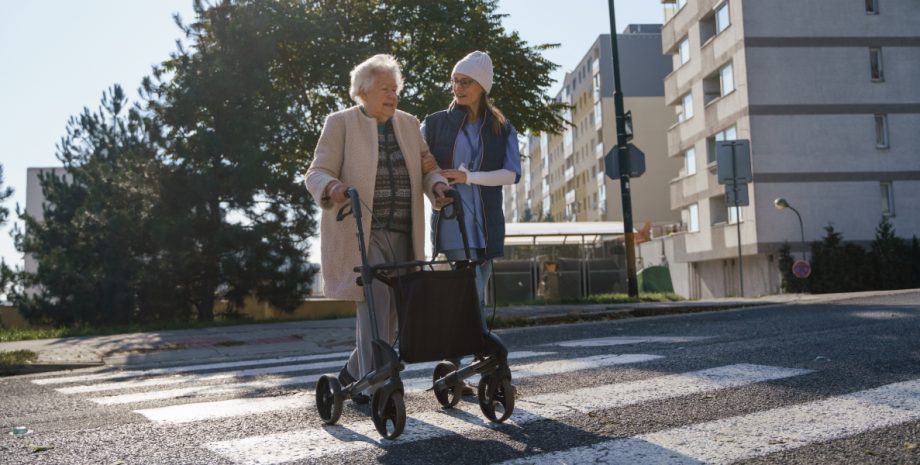

When you’re heading home for the holidays, sometimes the last thing you expect is to find out your parents are declining. As seniors age, there’s no telling when they will need some extra help in the form of assisted living, in-home companion care, and more. That’s because the effects of aging are different for everyone and highly dependent on any preexisting conditions requiring management.
It’s not easy to acknowledge that you are officially in the phase of your life when your parents need help. But it is important to make sure you are helping them to seek out the care they need to continue thriving.
If you live out of town:
If you’re coming home for the holidays from out of town, you may not see your parents often enough to spot the signs of changing behaviors and abilities. Some things require a simple fix, such as seeing a doctor to help with eyesight, nutrition, or managing symptoms and medications. In other, more severe cases, there may be serious signs that your loved one is no longer able to care for themselves.
Here are some things to look for that can tell you whether your parents need additional support:
- Weight loss or gain
If you notice sudden weight loss or gain in your aging loved one, it may be time to help them make an appointment with their primary care doctor. Weight fluctuations can mean poor nutrition, meaning they aren’t feeding themselves properly. They could also be a sign of illness, depression, dementia, or mobility problems. Sudden weight gain can also create a serious cardiac condition.
- Changes in their home environment
These can include a messier home than normal, hoarding, piling up of laundry and dirty dishes, expired food in the fridge and more.
- Refusal or forgetting to take medications
If your loved one suffers from an illness that requires medication, it is very important that they continue taking their meds at the time and dosage prescribed by their doctor. If you sense that they are no longer able or willing to do that, or if an automatic pill dispenser or “pre-sort” subscriptions are a burden, it may be time for in-home care.
- Changes in mood
Even if your loved ones weren’t exactly a rays of sunshine before, observe them for changes in mood that could signal depression. While the holidays are a time for family, and generally create some cheer, it’s important to be aware that your parent may be missing a deceased loved one or may be feeling more isolated this time of year.
- Mobility issues
Is your loved one appearing more frail than normal? Are they having difficulty moving around or getting up from a seated position on their own? What about navigating the bathroom or the kitchen? As we age, it’s normal to lose balance, physical mobility, and even the ability to perform certain tasks such as keeping up our homes. Keep an eye on your loved one’s mobility and make sure they can take care of themselves. If not, it’s time to investigate additional care measures.
What comes next?
If you do become aware of one or more of these issues arising for your aging parents, it’s time to talk to them about getting them some extra help. Some older adults may feel defensive. After all, most of us have a fear of losing our independence as we get older. It’s important to empathize with their feelings and let your parent be a part of the decision-making process. Strive to honor and respect your parents and practice communication clearly and compassionately. If needed, you can even bring in a trusted group of friends or family members to help you. For those in Central Indiana, CICOA Aging and In-Home Solutions provides a robust resource center.
Sometimes “home for the holidays” means running into the surprise of seeing your parents in need of additional assistance. In these cases, remember that aging and relying on others in the process is a normal part of life. Although it can feel scary and stressful for both you and your loved one(s), take heart in knowing that asking for the help you and they need will only make your lives easier and more enjoyable.
Relevant Services
Palliative Care
Palliative care can improve the quality life for those with chronic pain.
Orthopedics
Hancock Orthopedics treats conditions of the hand, wrist, shoulder, elbow, feet, and ankles.
Long-Term Care
Hancock Health provides long-term care services in partnership with AMG Specialty Hospital.
Internal Medicine
Get specialty care for adult patients living with diseases and chronic illnesses.